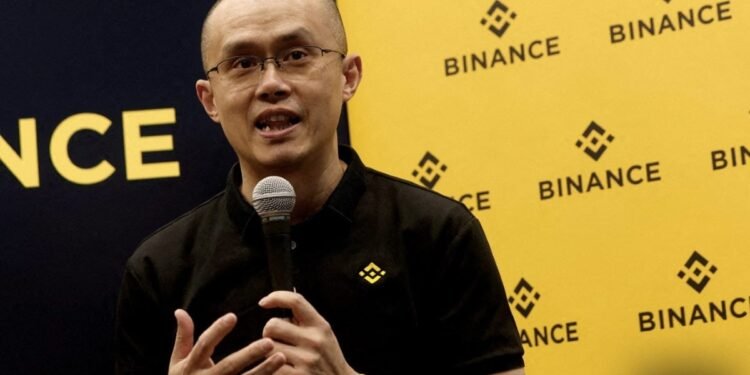By Seyi Babalola
The founder of cryptocurrency startup Binance was sentenced to four months in US prison on Tuesday after pleading guilty to money laundering charges, in the most high-profile crypto case since Sam Bankman-Fried’s arrest.
Changpeng Zhao, a Canadian, resigned from his position at the world’s largest cryptocurrency trading platform late last year as part of a settlement with US authorities.
According to two Treasury investigations, Binance failed to prohibit transactions by movements including as the Islamic State, al-Qaeda, and Hamas’ military branch.
Zhao pled guilty to breaking US anti-money laundering rules, and Binance agreed in February to pay $4.3 billion to resolve the accusations.
Prosecutors had asked the judge to impose three years behind bars for a crime that typically results in probation, according to a court filing.
“He made a business decision that violating US law was the best way to attract users, build his company, and line his pockets,” Justice Department lawyers said of Zhao in a sentencing memorandum.
“The sentence in this case will not just send a message to Zhao but also to the world.”
Attorneys for Zhao countered in a filing that being punished with probation is just, appropriate, and in line with legal precedent.
They cited Zhao’s acceptance of responsibility along with what they called his philanthropic track record.
“I made mistakes, and I must take responsibility,” Zhao, who lives in the United Arab Emirates, said in a post on X, formerly Twitter, in November.
He has been in the United States since that time.
Binance was created in 2017 and cornered much of the crypto-trading market, turning its founder and chief executive Zhao into a billionaire.
While Binance was founded in China, Zhao moved its operations to other locations internationally after a crackdown on the crypto sector by Beijing.
Binance runs crypto exchanges and provides other services around the world, but it took a severe hit when crypto markets collapsed and regulators began probing the legality of its business.









